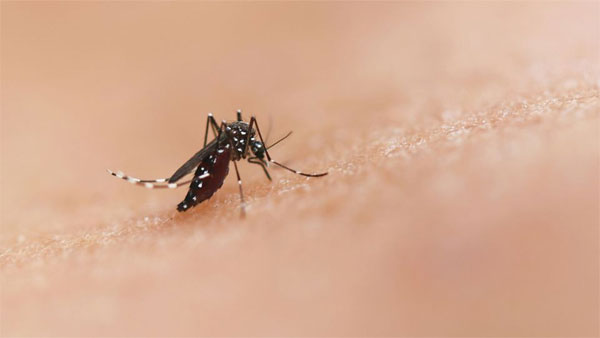Daijiworld Media Network - New Delhi
New Delhi, Jul 26: A groundbreaking study has found that ivermectin, a drug long used to combat parasitic diseases, can significantly reduce malaria transmission, potentially opening a new front in the global fight against the mosquito-borne disease.
Researchers from the Barcelona Institute for Global Health (ISGlobal) revealed that administering ivermectin to communities led to a 26% reduction in new malaria infections. The findings, published in The New England Journal of Medicine, highlight the drug’s potential to kill mosquitoes that feed on treated individuals — effectively transforming people into agents of vector control.

Traditionally prescribed for neglected tropical diseases such as onchocerciasis (river blindness) and lymphatic filariasis (elephantiasis), ivermectin is now being explored for a new role: breaking the malaria transmission cycle. With mosquitoes developing increasing resistance to conventional insecticides, this discovery offers a timely and promising alternative.
The study was conducted in Kwale County, Kenya, and focused on children aged 5 to 15. Those treated with ivermectin showed significantly fewer malaria infections than those given albendazole, the control medication. The impact was even more pronounced in areas with efficient drug distribution and in children living further from the borders of the treatment clusters.
“We’re thrilled with these findings,” said Carlos Chaccour, co-principal investigator and researcher at ISGlobal and the Navarra Centre for International Development. “Ivermectin could become a powerful complement to existing malaria control tools — and possibly a key player in elimination efforts.”
The study also confirmed that ivermectin is safe for mass drug administration (MDA). No serious adverse effects were recorded, with only mild, short-lived side effects typical of the drug’s use in existing disease eradication campaigns.
The clinical trial tested the effect of a single monthly dose of ivermectin (400 mcg/kg) given over three consecutive months, timed with the onset of the rainy season — when mosquito activity peaks.
Malaria continues to be a major global health challenge, with an estimated 263 million cases and nearly 600,000 deaths in 2023. The effectiveness of standard vector control methods — such as insecticide-treated nets (LLINs) and indoor residual spraying (IRS) — has waned due to mosquito resistance and shifting mosquito behavior, such as biting outdoors or during hours when people are unprotected.
The study’s results underscore the urgent need for innovative approaches. With further research and implementation support, ivermectin could become a valuable tool in the global strategy to curb malaria transmission — especially in regions where traditional control measures are failing.